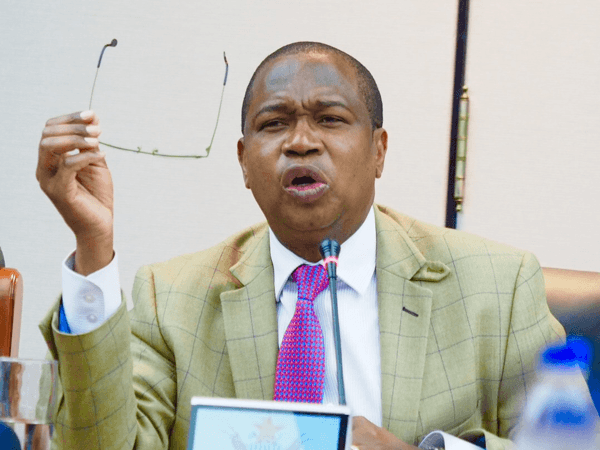
GOVERNMENT will not disburse cash to local authorities, but will instead provide water treatment chemicals and equipment to aid in the provision of portable water, Finance minister Mthuli Ncube (pictured) said yesterday.
By Elinera Manyonga
Ncube told journalists at a post-Cabinet briefing that government had already purchased water treatment chemicals and, therefore, would not be dolling out money to local authorities. “This initiative to pay directly to the companies is to avoid bureaucracy in government because water chemicals are important and need to be supplied in earnest. City councils will receive chemicals and not the money,” Ncube said.
The Finance ministry last week announced a US$2,2 million fund to meet local authorities’ water treatment chemicals requirements.
This came after Harare City Council temporarily shut down Morton Jaffray Waterworks because it had run out of water purification chemicals. However, government, in its briefing, lashed out at council.
“Of greater concern to Cabinet was that such a far-reaching decision was taken without prior consultations with central government. That notwithstanding, Cabinet endorsed the establishment of an inter-ministerial committee comprising the ministers of Local Government, Public Works and National Housing; Lands, Agriculture, Water, Climate and Rural Resettlement; Finance and Economic Development and the Harare City Council, to come up with strategies to conclusively resolve the Harare water supply challenges in the short, medium and long-term,” the Cabinet brief read. Council has blamed the crisis on foreign currency shortages, an unstable interbank market and failure by clients to pay over $1 billion owed in water bills and rates.
Government is one of the major council debtors, but Ncube said there were no scared cows, calling on council to collect all outstanding debts, even from government. “I do not have a definite figure, but everyone needs to clear their debts and that includes the government,” Ncube said.
In the long-term, government said it will invest in the construction of Kunzvi Dam, which has been on the cards for decades.
- Chamisa under fire over US$120K donation
- Mavhunga puts DeMbare into Chibuku quarterfinals
- Pension funds bet on Cabora Bassa oilfields
- Councils defy govt fire tender directive
Keep Reading
Ncube said a contractor has since been identified and will start work on the project which could ultimately end Harare’s water woes.
“We already have a contractor for the Kunzvi Dam, but we are still working on the finances. I, however, cannot give timelines, but the implementation will be soon,” Lands and Agriculture minister Perrance Shiri said at the briefing.
Currently Harare relies on Lake Chivero which is now heavily polluted by industrial waste and untreated sewage which council dumps directly into the lake because it no longer has the capacity to treat raw sewerage produced daily.











